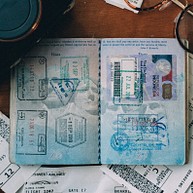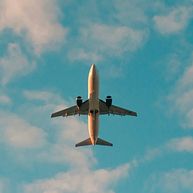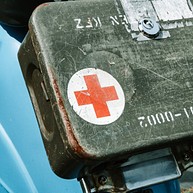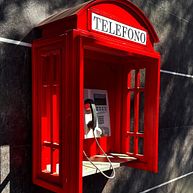
-
![floweing tree at sunset]() Provided by: Javier Santos Guzmán/unsplash
Provided by: Javier Santos Guzmán/unsplash

Our travel guides are free to read and explore online. If you want to get your own copy, the full travel guide for this destination is available to you offline* to bring along anywhere or print for your trip.
*this will be downloaded as a PDF.Price
€4,95
Best Time To Visit
The guide was updated:If you're looking for pleasant weather and don't mind the hotel prices and lots of tourists, then you should visit the city between March and May. Winter daytime temperatures can also be pleasant, it tends to cool down overnight. Summers are known for being rainy, so remember to pack an umbrella.
The city comes alive from September to November, when major festivals such as Día de la Independencia, Día de Los Muertos and Día de la Revolución take place. Be aware that Mexico City is situated about 7,350 feet (2,240 meters) above sea level, so remember to drink plenty of water and wear sunscreen.
Useful Information
Digital Travel Guide Download
Our travel guides are free to read and explore online. If you want to get your own copy, the full travel guide for this destination is available to you offline* to bring along anywhere or print for your trip.
*this will be downloaded as a PDF.Price
€4,95

If you're looking for pleasant weather and don't mind the hotel prices and lots of tourists, then you should visit the city between March and May. Winter daytime temperatures can also be pleasant, it tends to cool down overnight. Summers are known for being rainy, so remember to pack an umbrella.
The city comes alive from September to November, when major festivals such as Día de la Independencia, Día de Los Muertos and Día de la Revolución take place. Be aware that Mexico City is situated about 7,350 feet (2,240 meters) above sea level, so remember to drink plenty of water and wear sunscreen.
Read more

Passport / Visa
Visa exemption applies to citizens of all EU countries, most countries in the Americas, Australia, New Zealand, Japan, South Korea, and more. Both tourists and business visitors from these countries may stay in Mexico for up to 180 days. For Russian, Turkish and Ukrainian passport holders, electronic authorization (SAE) is required, which then grants travelers from these countries the right of a single entry followed by a stay of up to 30 days. Please consult an official source/consulate in your home country for the latest information on visa requirements.
When traveling to Mexico, you are almost always asked to demonstrate a return/onward ticket. Asking for hotel booking information is also common.
Read more

Mexico City International Airport (MEX)
The Benito Juarez International Airport is located in the eastern part of Mexico City, and it has two terminals connected by a bus and light rail system. Do check which terminal you are departing from — finding and taking said train takes time. International airlines fly here from larger cities around the globe.
You can reach the airport or city center by taxi, metro or bus.
There are several airport taxis recognizable as white and yellow (with black logos of an airplane) that transport you to and from the city. You can buy tickets inside the airport and cars are available at Terminals 1 and 2. Taking Uber or Didi is advisable.
While the metro might not be the best option if you are traveling with heavy luggage, it provides a much cheaper way of getting to and from the airport. The stop "Terminal Aérea" on line 5 can be found next to airport Terminal 1. Line 1, 5, 9 and A are within walking distance from Terminal 2, and the stop is called “Pantitlán”. You can buy tickets at the metro station or purchase a rechargeable metro card.
Alternatively, the Metrobus operates between the city center and the airport, and stops at Puerta 7 at Terminal 1 and Puerta 2 at Terminal 2.
Read more

Felipe Ángeles International Airport (NLU)
Some national flights will fly to AIFA airport in the State of Mexico. You can get to the airport by bus or car. Without traffic, your ride will take about an hour. A train line is under construction and is scheduled to open in April 2024.
Originally called Santa Lucía Airport and serving as Mexican Air Force base no. 1, the airport was renamed after Felipe Ángeles (a general in the Mexican Revolution) in early 2021. In Spanish, its initialism is AIFA.
Read more

Licenciado Adolfo López Mateos International Airport (TLC)
This airport is located in Toluca, approximately 50 km from Mexico City. It has recently been transformed into an international airport and it is not as easily accessible as Mexico City International Airport.
If you arrive at or depart from Licenciado Adolfo López Mateos International Airport you best hire a car or take a taxi to the city center.
Read more

Metro
The Metro is a cheap way of transportation and will take you almost everywhere in Mexico City. The 12 lines operate until midnight. The first cars of each train are reserved for women and children.
It's smart to avoid the Metro during rush hour. The trains get very full, and pickpockets often take advantage of that.
STC Metro tickets are among the cheapest in the world. Tickets can be purchased at ticket machines in every station, or you can get a rechargeable Metrocard.
Read more

Bus
Along with the Metro, the local bus system is a fast and easy means of transportation in the city. Tourist-frequented streets, attractions as well as multiple points of interest usually have at least one bus stop nearby, and one ticket costs very little (price is fixed regardless of distance traveled). Payment is made in cash when boarding the bus. Peseros (mini buses) are operated by multiple private firms and run alongside official RTP buses.
In addition, there is the Metrobus — a modern and fast BRT system that will take you pretty far. For these buses you will need a rechargeable smartcard (may be purchased at vending machines).
Read more

Taxis
While hailing a cab off the street can be risky, taxis can be a convenient means of transport in Mexico City. Your best bet is calling an official provider, especially if you don't speak Spanish.
Taxi Mex: +52 55 9171 8888
Taxis Radio Elite: +52 5560 1122
For lower fares, you can always order a cab through the Uber or Didi app.
Read more

Time Zone
The time zone in Mexico City (CDMX) is Central Standard Time (CST), which is UTC-6. Since 2022, Mexico does not observe daylight saving time.
Read more

Post
The Palacio de Correos de México (or Correo Mayor) is not only Mexico City's main Post Office, but also a historical building dating back to the 20th century. After an earthquake struck Mexico in 1985 much of the Palacio was destroyed, only to be restored in 1990.
Read more

Pharmacy
Mexico has a thriving pharmaceutical industry, and generic drugs are a fraction of the price compared to their brand-name analogues in the US and Europe. Big chains like Farmacias del Ahorro, Farmacia San Pablo, Farmacias Similares (known for their dancing mascot Dr Simi) and Farmacias Guadalajara are open late or even around the clock. Some locations will have an on-duty doctor who can recommend and prescribe treatments, as well as take samples for lab tests.
Read more

Telephone
Country Code: +52
Area Code: 55
Read more

Electricity
In Mexico, the power plugs and sockets are of type A (two flat prongs) and B. The standard voltage is 127 V and the standard frequency is 60 Hz.
Read more


